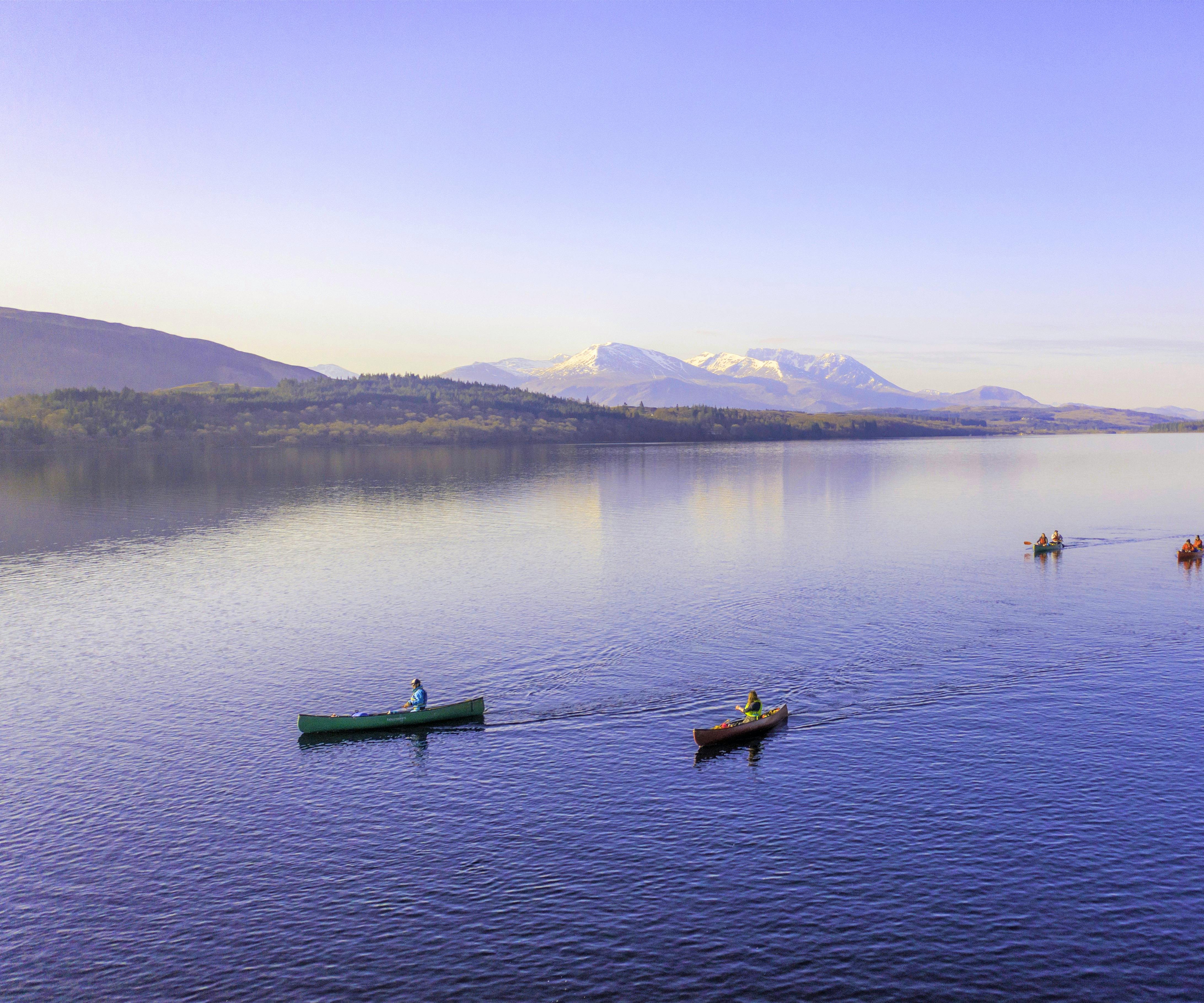Newquay Surfing Guide: Everything You Need To Know
Cornwall is famous for its surfing. And when it comes to surfing in Cornwall, there’s no better place than Newquay.
Newquay surf is abundant and versatile, with different beaches that offer waves throughout the year. From beginner-friendly foamies to more advanced breaks, there’s a lot on offer for surfers in Newquay.
As a start, we recommend checking out these two awesome multi-day surfing trips run by an awesome local surf school that Skyhook works with: 4-Night Newquay Surf Camp and Surfing, Coasteering & Wild Camping in Cornwall.
Now, let’s explore everything you need to know about Newquay surf.
Where is Newquay?
Newquay is a town situated on the north coast of Cornwall, England. It's known for its beautiful beaches, surfing opportunities, and picturesque coastal scenery.
Newquay is home to several beautiful beaches, each offering its own unique charm and appeal. Some of the well-known beaches in Newquay include Fistral Beach, Towan Beach, Great Western Beach, Watergate Bay, Lusty Glaze Beach, and Porth Beach, among others.
In total, there are around seven main beaches in Newquay, each providing visitors with opportunities for surfing, sunbathing, coastal walks, and enjoying the breathtaking coastal scenery that this area of Cornwall has to offer.
The laidback vibe of Newquay also means there are plenty of other related activities to enjoy here - like doing a yoga and surf retreat or wild camping in Cornwall.
Can You Surf in Newquay?
Yes, Newquay is renowned as one of the top surfing destinations in the United Kingdom. In fact, Newquay surf beaches are dubbed ‘the home of British surfing”.
The town is famous for its fantastic waves and is a haven for surfers of all levels, from beginners to experienced riders. Fistral Beach, in particular, is internationally acclaimed for its consistent surf breaks and hosts various surfing competitions throughout the year.
Other beaches in Newquay, such as Watergate Bay and Crantock Beach, also offer excellent conditions for surfing.
Surf schools and rental shops abound, providing lessons and equipment for those looking to learn or improve their surfing skills while enjoying the stunning coastal scenery that Newquay has to offer. Skyhook's local Hosts are based in central Newquay, giving you easy access to the best beaches and surfing conditions.
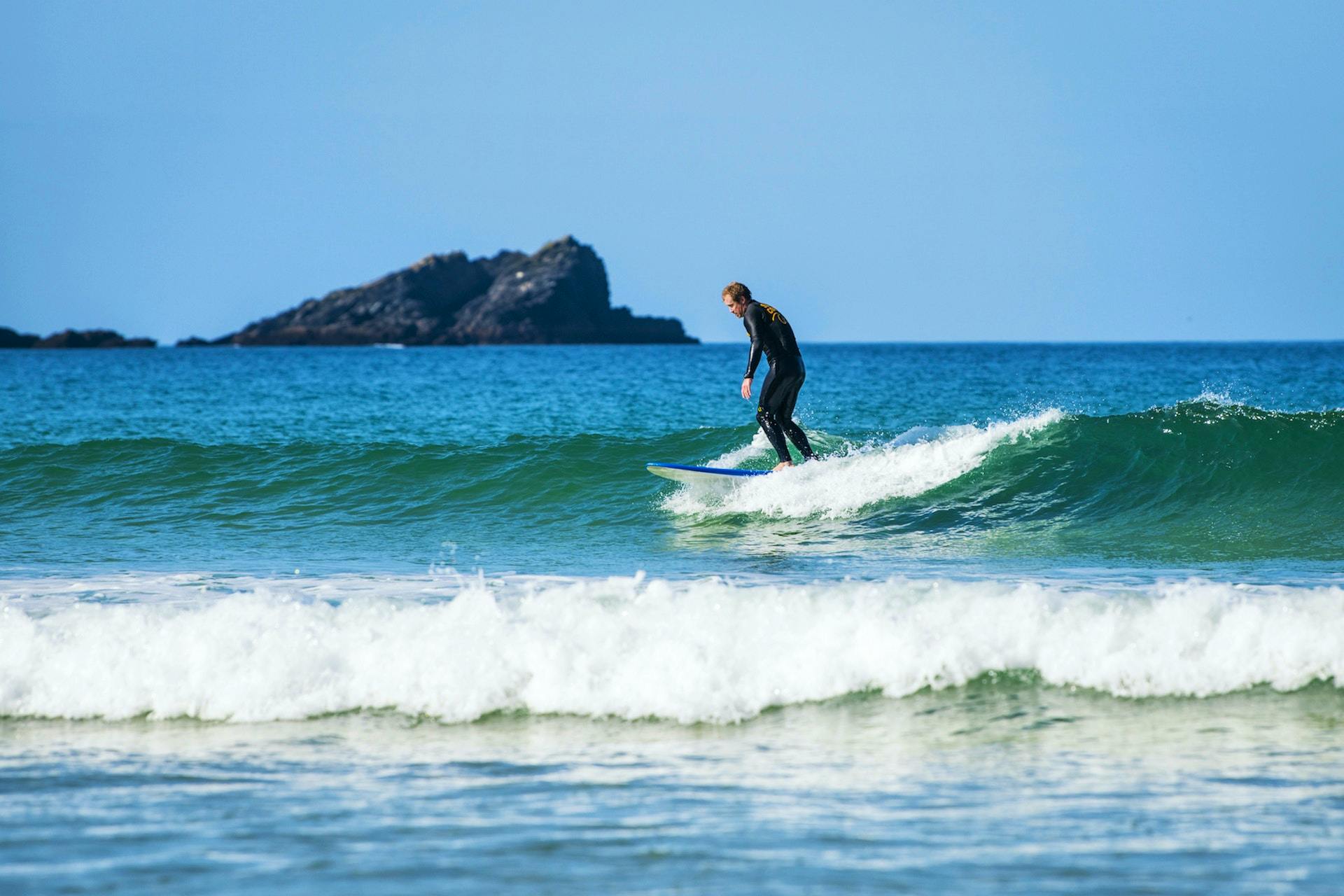
Newquay Surf: What You Need to Know
Newquay is the UK’s surfing capital, offering waves for all kinds of surfers. These waves are spread out across a variety of beaches around the town. When the swell is big enough, you could even catch some big waves slightly offshore.
Surf conditions in Newquay vary based on tides, swell direction, and wind. Generally, the surf tends to be more consistent during autumn and winter, but there can be good waves throughout the year.
Summer months might bring smaller waves, perfect for beginners, while autumn and winter can see larger swells that challenge more experienced surfers.
If you’re going to surf Newquay, be prepared for cold water throughout the year. Especially during winter, a thick wetsuit, booties and a hoodie will make your life a lot more comfortable.
Surfers visiting these beaches should be mindful of local surf etiquette, be aware of rip currents, and consider the conditions and their own skill level before entering the water.
Newquay is a busy coastal holiday spot, so the town is always full of beachgoers during the summer months. This means it’s very important to always listen to the lifeguards and to surf within the designated areas.
Surf schools and local experts can provide guidance on the best spots depending on individual skill levels and the prevailing conditions.
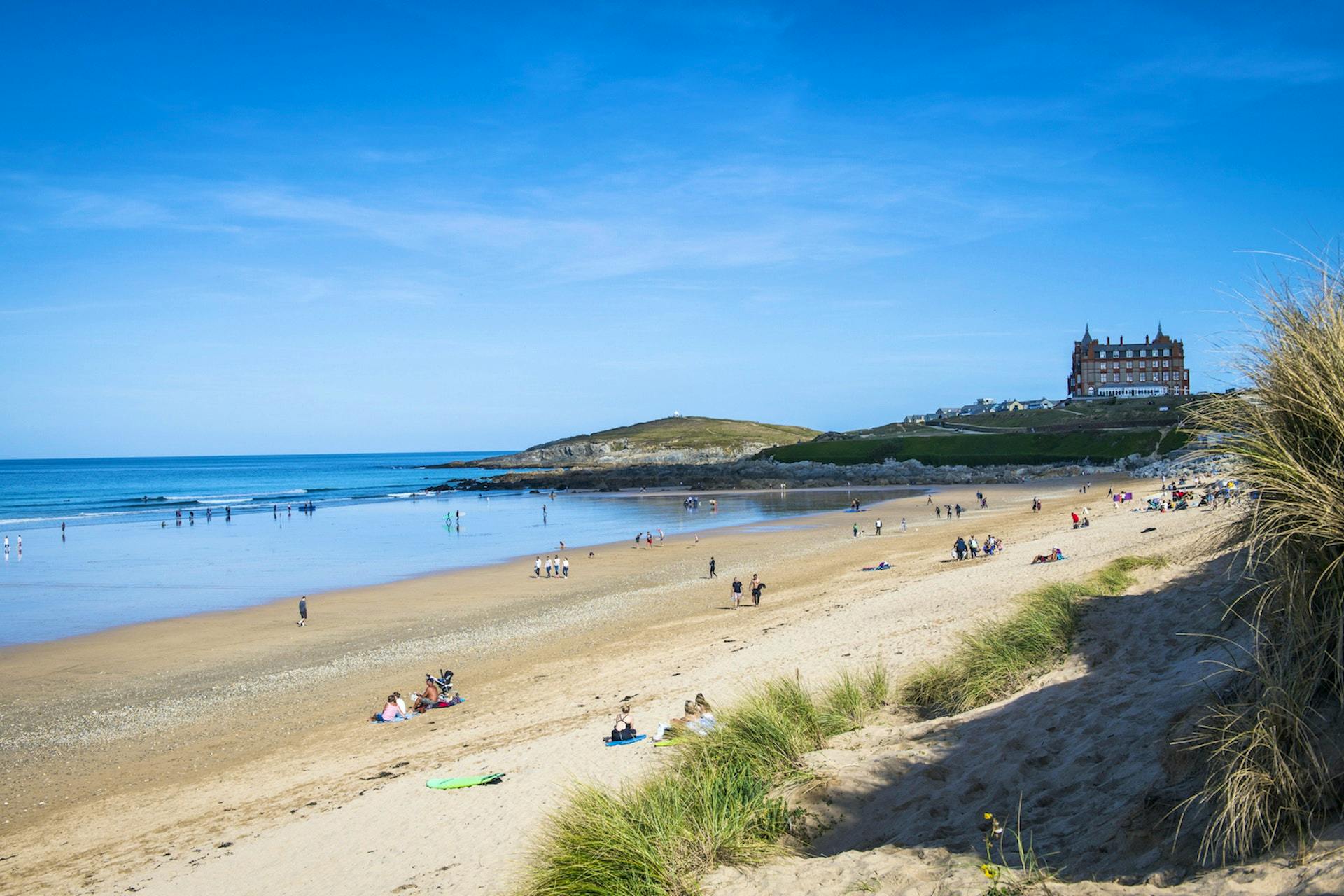
Best Newquay Surfing Beaches
Newquay is renowned for its variety of surfing beaches, each offering distinct characteristics that cater to surfers of different skill levels and preferences.
Here are some of the best surfing beaches in Newquay.
Fistral Beach
If you’re looking for Newquay surf, then Fistral Beach is the first place you’ll go to.
Fistral stands out as the most famous and iconic surfing spot in Newquay. It offers consistent waves suitable for both beginners and experienced surfers. The beach has several sections known for different wave qualities.
The North Fistral provides larger waves and more challenging conditions, ideal for experienced surfers.
South Fistral typically offers smaller and more manageable waves, making it suitable for beginners. The beach hosts major surfing competitions and can get crowded during peak seasons.
The great thing about Fistral Beach is that the beach is so long, with consistent waves right across the beach. This means there’s plenty of room for surfers to spread out - even when the beach is crowded (which it almost always is).
Fistral also has surf rental shops on each end of the beach, making it convenient to rent boards, and wetsuits, or go for lessons whenever you park.
Don't forget to grab a famous Cornish pastie or an ice cream after your time in the water!
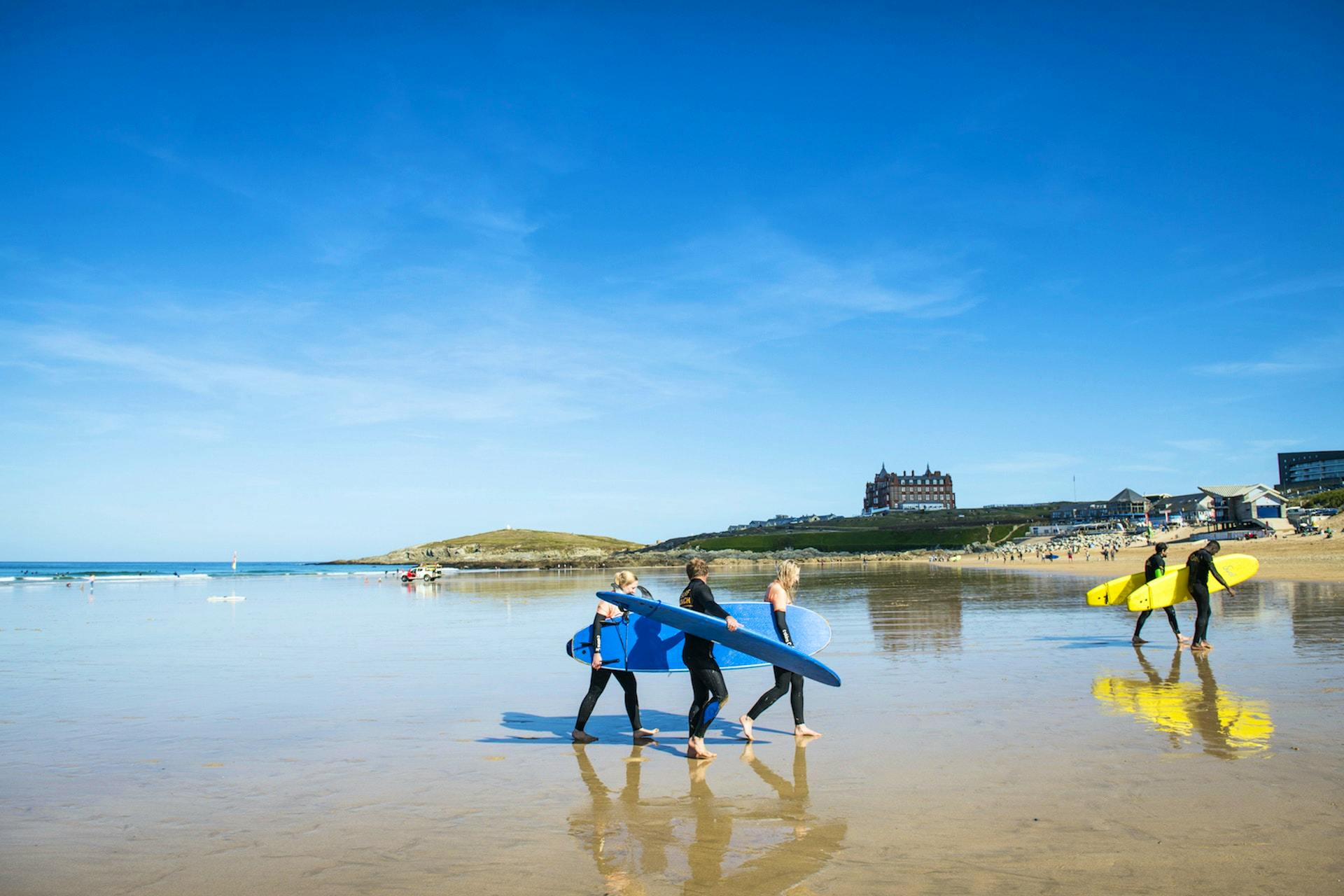

Latest Deals
Watergate Bay
Known for its wide stretch of golden sands, Watergate Bay offers excellent conditions for surfing.
The bay is more exposed and can receive larger swells, creating waves suitable for intermediate to advanced surfers. This means it’s a more temperamental destination for Newquay surf, and mostly fires during the winter months when the swells are coming in in the right direction.
The beach provides a variety of peaks along its length, allowing surfers to find waves that match their skill level. It's a great spot for those seeking larger waves and a more open, exposed beach environment.
Chances are, if you can't get waves at Watergate Bay, there will still be something to ride at Fistral or Towan.
Towan Beach
Towan Beach is located close to the Newquay town centre and offers a mix of waves suitable for beginners and intermediate surfers. The waves here can be gentler, making it a good spot for learning.
However, it's also influenced by tidal changes, so conditions may vary throughout the day.
Towan is also a very popular beach for non-surfers, and during the summer months, the beach is often closed for surfers at certain hours. Always check this before trying to surf at Towan Beach, as you might have to relocate to another nearby beach.
If you’re planning on surfing the left side of the beach, you can access the Towan surf by paddling through the harbour. This is a convenient way to get into the waves if you’re walking down to Towan from the town.
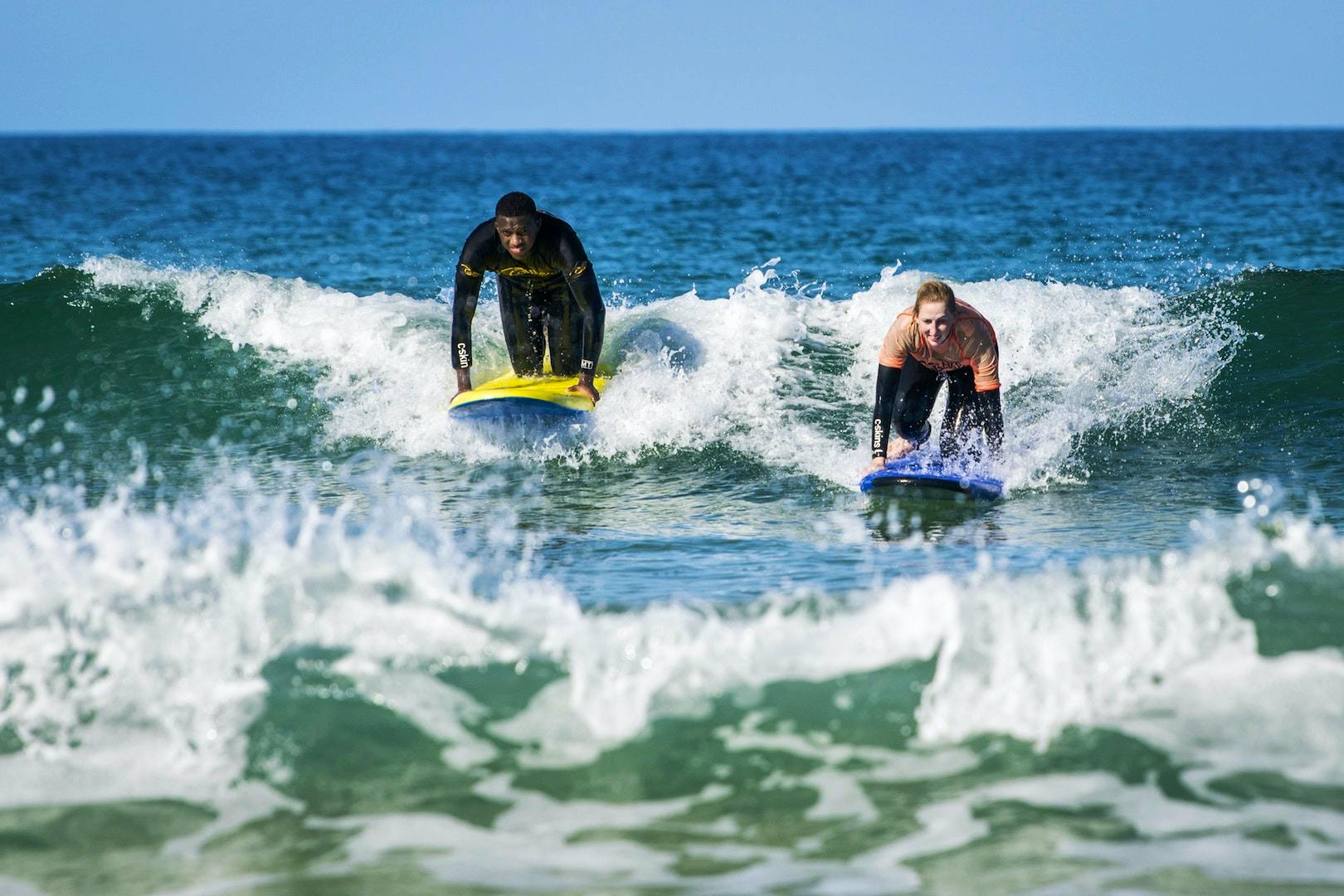
Crantock Beach
Just south of Newquay, Crantock Beach is more sheltered and provides a more relaxed surfing environment compared to some of the other beaches.
It's suitable for beginners and intermediate surfers, offering smaller and more manageable waves, particularly around the river mouth area.
While the waves are gentle here, you can't expect to ride anything truly “world-class”, so if you’re after more serious surf, you’d be better suited at Fistral.
Porth Beach
Porth Beach is another family-friendly spot with smaller waves, making it suitable for those looking for a more relaxed surfing experience. It’s also one of the best places for surfing for beginners in Cornwall.
The waves here are generally manageable and can be ideal for learning. Just be aware that with beginner-friendly waves come many beginner surfers - something that could potentially annoy those who are more experienced in the water.
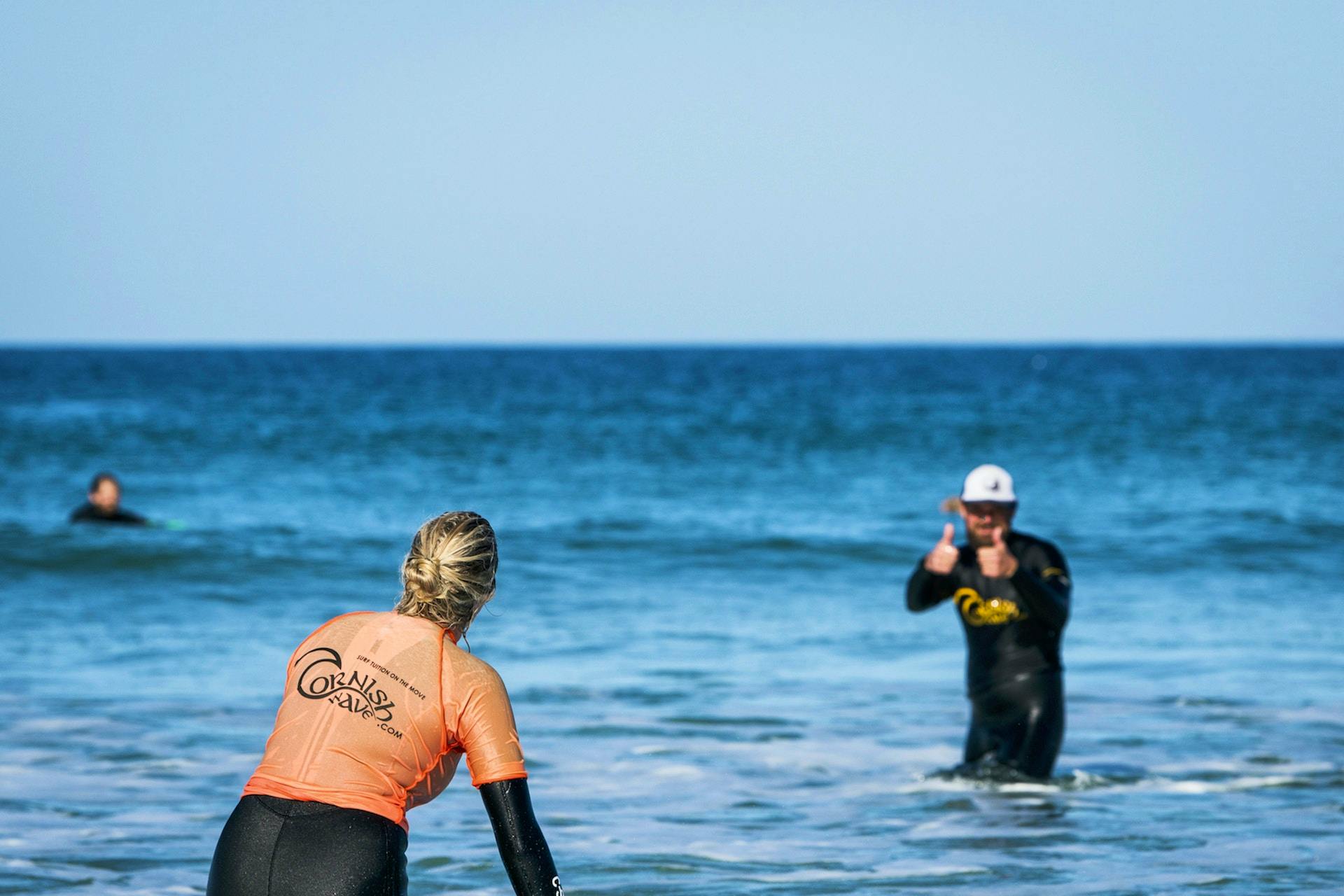
10 Tips for Surfing Newquay
Surfing Newquay, Cornwall, is loads of fun as there are many great waves and spots to surf. However, the beaches here are busy, and it’s important to figure out the best time to surf Newquay so that you’re prepared for the waves.
The best thing to do is join up with a professional surfing school so the logistics and equipment are taken care of for you.
Here are a few important tips to keep in mind for Newquay surf trips.
1. Know the Beaches
Familiarize yourself with the different beaches in Newquay and their varying wave conditions. Each beach offers its own unique surfing experience, so choose according to your skill level and preferences.
2. Check Surf Reports
Before heading out, check local surf reports or use surf forecasting websites/apps to gauge the current conditions, including swell size, wind direction, and tide times. This will help you pick the best beach for the day.
3. Respect Local Etiquette
Follow surfing etiquette and respect other surfers in the water. Be mindful of the right of way, avoid dropping in on someone else's wave, and maintain a friendly attitude in the lineup.
Newquay surf gets crowded when the waves are good, so this is really important for your safety.
4. Practice Safety First
Be aware of potential hazards such as rip currents and submerged rocks. Always surf within your skill level and be cautious in unfamiliar conditions. If you're a beginner, consider taking lessons from certified instructors.
5. Bring an Appropriate Wetsuit and Gear
Newquay's waters can be chilly even in summer, so wear a suitable wetsuit to keep warm. If you don't have your own gear, numerous surf shops in the area offer rentals for boards, wetsuits, and other equipment.
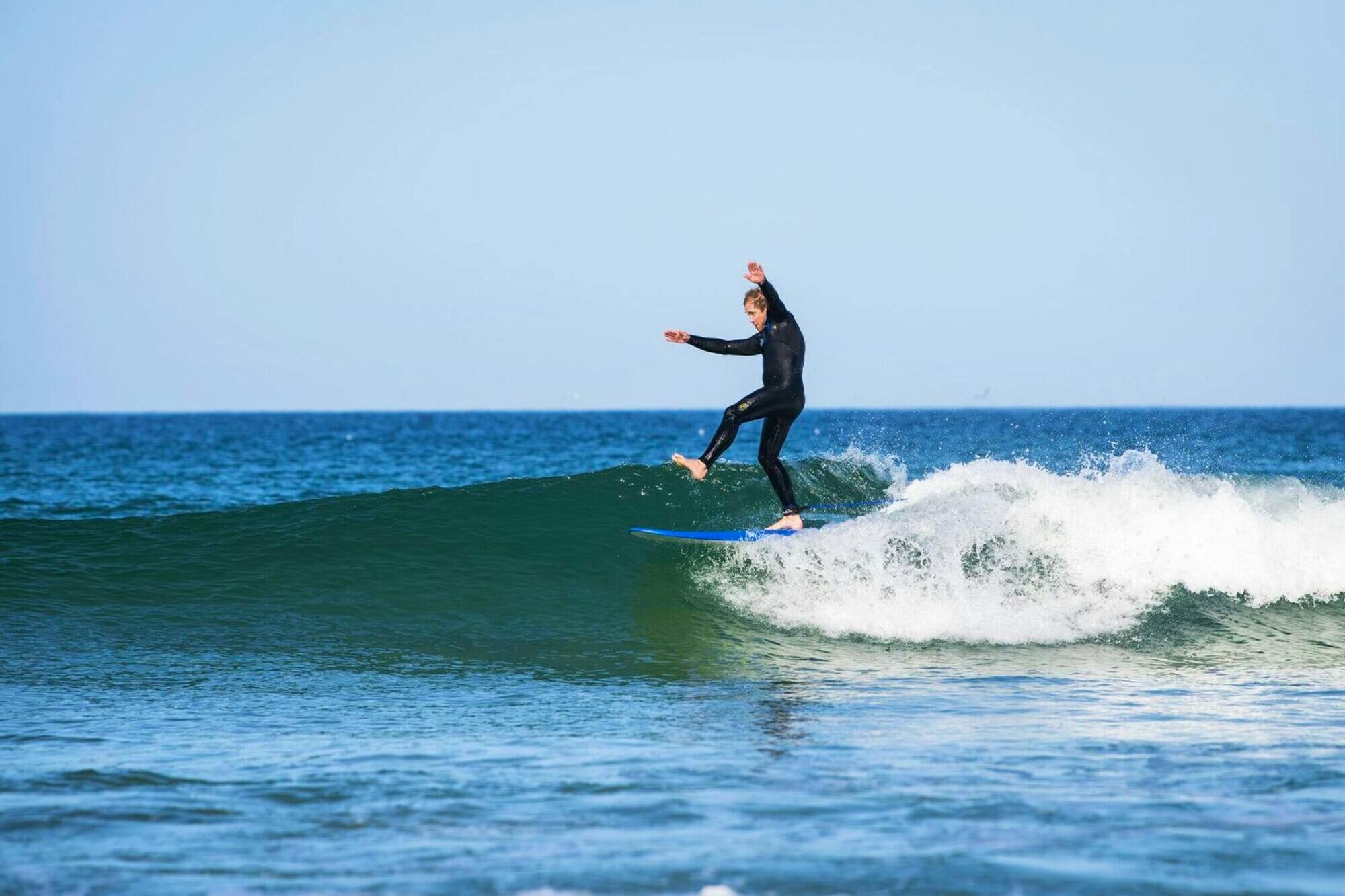
6. Watch and Learn
Spend some time observing the waves and how they break at your chosen beach. Understanding the wave patterns and timing can significantly enhance your surfing experience.
7. Respect the Environment
Keep the beaches clean by disposing of trash properly and respecting the natural surroundings. Help preserve the beauty of Newquay's coastline for everyone to enjoy.
8. Be Weather-Aware
Weather conditions in coastal areas can change rapidly. Keep an eye on the weather forecast and be prepared for any changes, including sudden winds or storms.
9. Stay Hydrated and Protected
Bring plenty of water and use sunscreen to protect your skin from the sun, especially during longer surf sessions.
10. Enjoy Yourself and Have Fun
Lastly, remember that surfing in Newquay is not just about catching waves; it's about enjoying the experience, connecting with the ocean, and having a great time amid the stunning coastal scenery. Embrace the thrill and joy of riding the waves in this surfing paradise.
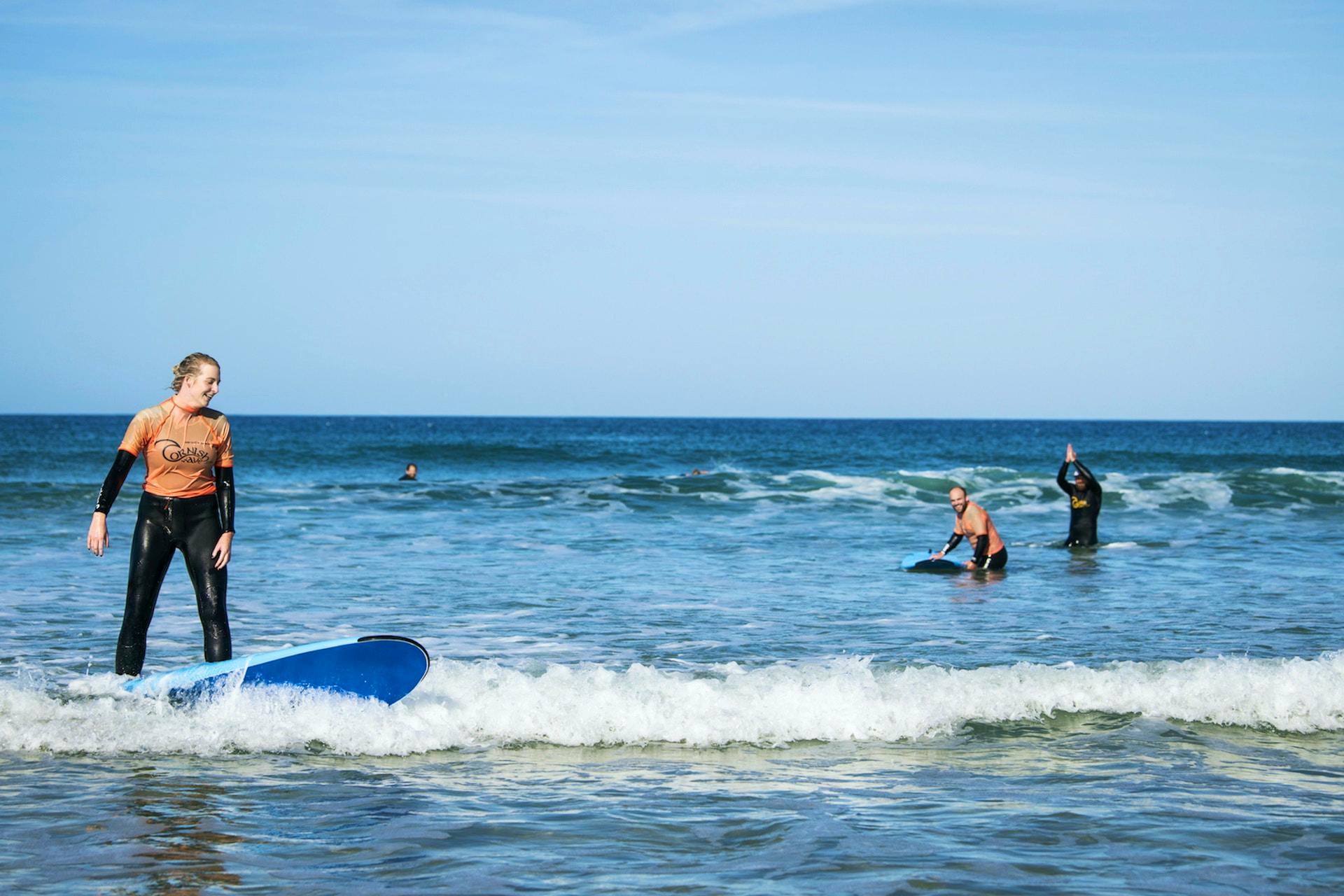
Conclusion
The surf at Newquay is more consistent than anywhere else in the UK, and when the waves are good, they’re good!
If you’re interested in surfing anywhere in the UK, Newquay is the best place to do it. Whether it’s your first time on a board, or if you’re a seasoned surf pro, there’s plenty of fun to be had at this buzzing Cornish surf town.
Interested in joining a fun multi-day instructional surfing trip? Check out the 4-Night Newquay Surf Camp and Surfing, Coasteering & Wild Camping in Cornwall trips run by Skyhook's local Cornwall Hosts.
Read More Related Surf and Coastal Articles
Find your next adventure
Why Skyhook?
Join over 27,000 Skyhook adventurers who've used our platform to book directly with our vetted local guides, at local prices (we never markup).
Expert Local Guides
Experienced local guides, handpicked by us.
Best Prices
Never pay a markup on the local guide's price.
Exclusive Club
Earn loyalty rewards every time you travel.
Great Social Vibes
Small group tours provide a richer experience.
Stellar Feedback
Over 2,800 reviews, average of 4.9/5 stars.












